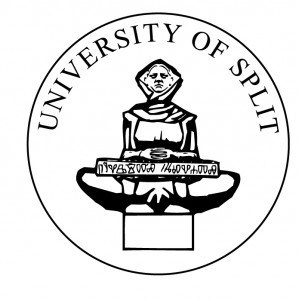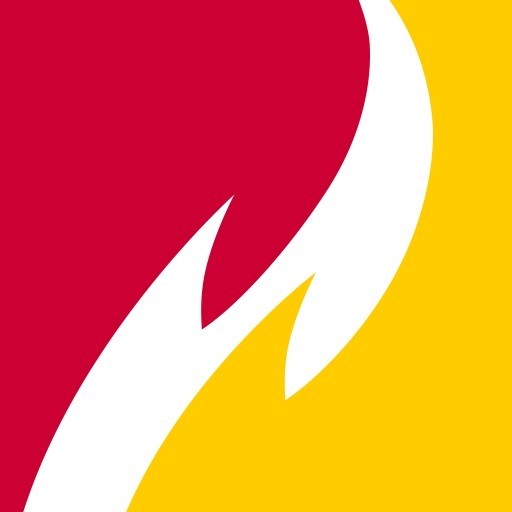Photos of university
Program Name: Medical Studies (English Language)
The Medical Studies program at the University of Split is a comprehensive and challenging undergraduate degree designed to prepare students for a career in medicine. This program provides a thorough foundation in the basic and clinical sciences, integrating theoretical knowledge with practical skills essential for future healthcare professionals. The curriculum encompasses a wide range of subjects, including anatomy, physiology, biochemistry, microbiology, pathology, pharmacology, and clinical medicine. Throughout the course, students gain valuable hands-on experience through laboratory work, lectures, seminars, and clinical practice in affiliated hospitals and healthcare institutions.
The program is taught entirely in English to accommodate international students and to foster a global perspective in medical education. This multilingual approach ensures graduates are well-equipped to work in diverse healthcare settings and communicate effectively with patients and colleagues worldwide. The program emphasizes not only technical competence but also the development of professional ethics, communication skills, teamwork, and research capabilities.
Students benefit from state-of-the-art teaching facilities, access to modern laboratories, and exposure to cutting-edge medical technologies. The faculty comprises experienced educators and practicing clinicians dedicated to nurturing the next generation of physicians. The program also encourages critical thinking, continuous learning, and innovation, aligning with the latest developments in medicine and healthcare.
Graduates of the Medical Studies program at the University of Split are prepared to pursue further specialization, residency training, or enter the healthcare workforce. They are equipped with the knowledge and skills necessary for diagnosing, treating, and preventing illnesses, adhering to the highest standards of medical practice. Upon completion, students earn a Medical Doctor (MD) degree, qualifying them to register as licensed physicians and contribute meaningfully to patient care and medical research.
Overall, the Medical Studies program in English at the University of Split combines rigorous academic training with practical clinical experience, fostering well-rounded, competent, and ethical healthcare professionals ready to address the complex health challenges of today and tomorrow.
Electives
Two weeks in a school year are scheduled for 25 hours of elective classes – one week in autumn and one in spring and never at the beginning or the end of the school year. Departments can also organize classes for electives within their blocks in such a way that they do not intervene with basic classes.
Electives also include clinical rotations. Students can choose electives from within a medical/surgical field. For example, surgical electives include: General Surgery, Neurosurgery, Orthopaedics, Ophthalmology etc. Elective classes consist of 250 hours of elective courses in the whole program (two in each of the first four years, 20 ECTS credits) and 640 hours (25 ECTS credits) of clinical rotations. This adds up to 890 hours (45 ECTS credits) which is equivalent to 16.1% of the total number of hours in the program (12.5% ECTS credits).
Vertical courses
Four courses are “verticalized”.
Propedeutics, in the narrow sense of the word, is in the third year but Clinical skills courses are added to it in the first two years. Clinical skills, Propedeutics, clinical subjects and clinical rotations are carried out so that the acquisition of skills begins by practising on anatomical specimens followed by artificial models and then finally on patients, gradually reaching the most complex procedures by the sixth year of the program.
Medical humanitiescourse unites ‘Introduction to medicine’, ‘Medical Sociology’, ‘Medical Ethics’, ‘History of Medicine’ and ‘Medical English’.
Scientific research course is comprised of subjects required for conducting scientific research in medicine, such as: medical statistics, medical informatics, principles of evidence based medicine (EBM), evaluation of health care excellence and writing of a graduate thesis. The first part (first five years) prepares the students for research in biomedicine and the second part (sixth year) comprises the writing of the graduate thesis.
Psychological Medicineis in the third and fourth years of the program and it is directed primarily towards acquiring relationship skills with patients and colleagues, rules of conduct and compassion.
Family medicine
Family medicine is an 80 hour subject (3 ECTS credits) in the final year. There are 20 hours of lectures and the practical part includes two students working in the School of Medicine’s Family Medicine Clinic throughout the sixth year until they have carried out 60 hours of work. Services at the Clinic are free of charge and students’ work is supervised by two family medicine physicians employed by the School of Medicine.
Clinical rotations
Clinical rotations are during the sixth year of the program. They integrate acquired knowledge and skills which the students are expected to apply in everyday practice while managing patients.
Clinical rotations cover: Internal Medicine, Surgery, Obstetrics and Paediatrics and Family Medicine. They are full time and last 4.5 weeks each (180 hours), except for Family Medicine which goes for 2.5 weeks (100 hours).
Students are led by their mentors during clinical rotations – one mentor per student. The rotation consists of students following the full time work of their respective mentors. In order to achieve this, students are distributed to different wards and rotated amongst them. This means that one person can mentor more students in a year.
Within the clinical rotations for Internal Medicine, Surgery and Obstetrics and Paediatrics students are given the choice of sub specialties while in Family Medicine they can experience working in a specific environment (city-village, island etc.)
Mentors are chosen from senior residents and junior ward physicians. Their only mission is to make their student-protégé a close follower of their work and their substitute whenever that is possible.
I. Application conditions:
Persons with following levels of prior education may apply:
1) Completed university education (or its final year) and the Medical College Admission Test (MCAT);
2) Completed university education (or its final year; natural sciences college or university program with biology, chemistry or physics as the major subject);
3) Completed secondary education (or its final year, in the total duration of 12 years) and the SAT Reasoning Test or American College Testing;
4) Completed secondary education (in the total duration of 12 years) with the state graduation result expressed in percentage based on which candidates are ranked in the home country;
5) Completed secondary education (or its final year) with none of the additional requirements listed 1-4.
The above conditions represent the priority criteria which will be used for selection of candidates.
Financing studies for the Medical Studies program at the University of Split typically encompass various sources of funding that support students throughout their educational journey. The primary financial support sources include government-funded scholarships and student grants, which are generally awarded based on academic performance, financial need, and other criteria established by national and university regulations. These scholarships aim to reduce the financial burden on students and facilitate equal access to medical education, which is often costly due to the comprehensive nature of the curriculum, laboratory work, and clinical practice components.
In addition to government support, students may have access to university-specific scholarships and awards designed to promote excellence and encourage academic achievement among medical students. These may include merit-based scholarships, special awards for outstanding research or extracurricular activities, and grants for students from marginalized groups.
Many students also finance their studies through personal savings or family support, especially in instances where governmental or university funding is limited or highly competitive. Some students may seek part-time employment opportunities, either within the university through assistantship roles or in external healthcare and administrative settings. These jobs not only provide financial assistance but also offer valuable professional experience that complements their medical training.
International students attending the University of Split may be eligible for specific scholarships offered by the Croatian government or the university’s international programs. Scholarship applications often require submission of academic transcripts, motivation letters, and proof of financial need.
Furthermore, students may access loan programs facilitated by Croatian financial institutions or international lenders that provide education loans with favorable interest rates and repayment terms suited for students. Some students also benefit from student loans or financial aid packages offered by multinational organizations or regional initiatives supporting higher education.
Although the university does not publicly specify a detailed financing plan for the Medical Studies program, it is reasonable to infer that the combination of governmental funding, university scholarships, personal resources, part-time employment, and student loans forms the primary framework for financing medical education at the University of Split. Students are encouraged to explore and apply for all available funding opportunities early to ensure comprehensive financial support during their studies.
The Medical Studies program at the University of Split is a comprehensive undergraduate course designed to prepare students for a career in medicine. The program is primarily taught in English, attracting international students as well as local students seeking high-quality medical education. The curriculum is structured to provide a solid foundation in medical sciences, clinical skills, and practical training, ensuring graduates are well-equipped to enter the healthcare system.
Students enrolled in the program can expect to study various disciplines, including anatomy, physiology, biochemistry, microbiology, pathology, pharmacology, and internal medicine. The program emphasizes both theoretical knowledge and practical application, with clinical rotations and internships arranged in affiliated hospitals and clinics. These hands-on experiences enable students to develop essential skills in patient diagnosis, treatment, and communication, which are crucial for their future professional practice.
The program is designed to meet international standards and is recognized by relevant medical authorities and accreditation bodies. The teaching staff comprises experienced professors and medical practitioners who utilize modern teaching methods, including lectures, seminars, case studies, simulation-based training, and e-learning modules. The program also encourages research activities and participation in scientific projects, fostering an academic environment that promotes innovation and continuous learning.
International students benefit from additional support services, including language assistance, orientation programs, and integration activities, facilitating their adaptation to life at the university and in Croatia. The university collaborates with various international institutions, providing opportunities for exchange programs and joint research initiatives.
Graduates of the Medical Studies program at the University of Split are qualified to pursue specialization and residency training in various medical fields. They can register as medical doctors and work in different healthcare settings, including hospitals, clinics, research institutions, and public health organizations. The program aims to produce well-rounded healthcare professionals committed to excellence in patient care, research, and community service.
Overall, the Medical Studies program at the University of Split offers a rigorous and globally recognized education, preparing students to meet the challenges of modern medicine while fostering a global perspective on healthcare issues. The university's commitment to quality education, research, and international collaboration ensures that graduates are highly competitive in the global job market and capable of contributing significantly to healthcare advancements.










